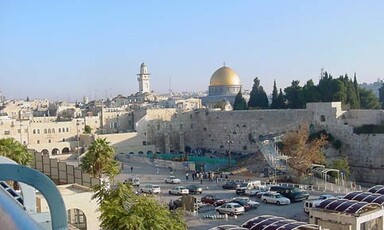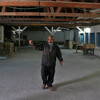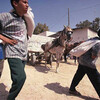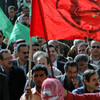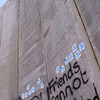
WaSPR Delegation Diary 8: Israelis Who Want Peace: Gush Shalom and Physicians for Human Rights
Tel Aviv, Jaffa 21 March 2006
Adam Keller explains, “Once you have decided not to be intimidated, you are not.” He went on a hunger strike. He was finally discharged from the Army for psychiatric reasons. “If you become a trouble maker and are in prison multiple times, then they look for a reason to finally throw you out for psychiatric reasons.” He was advised by friends, “Look, if they send you to the psychiatrist, just try and play along and you will get a discharge. If you apply for Consensus Objector status, you will be in and out of prison for the rest of your life.” Read more about WaSPR Delegation Diary 8: Israelis Who Want Peace: Gush Shalom and Physicians for Human Rights

